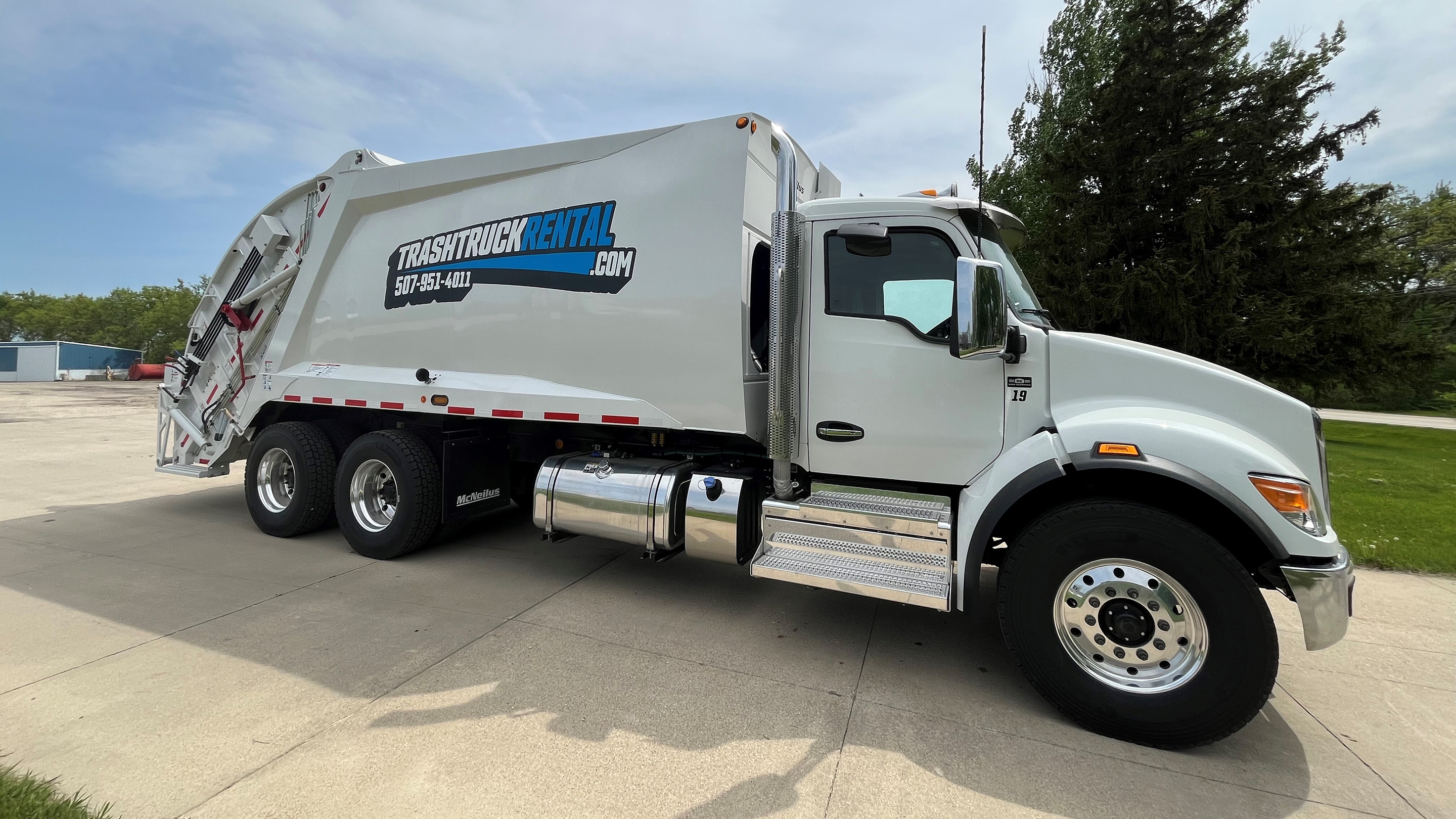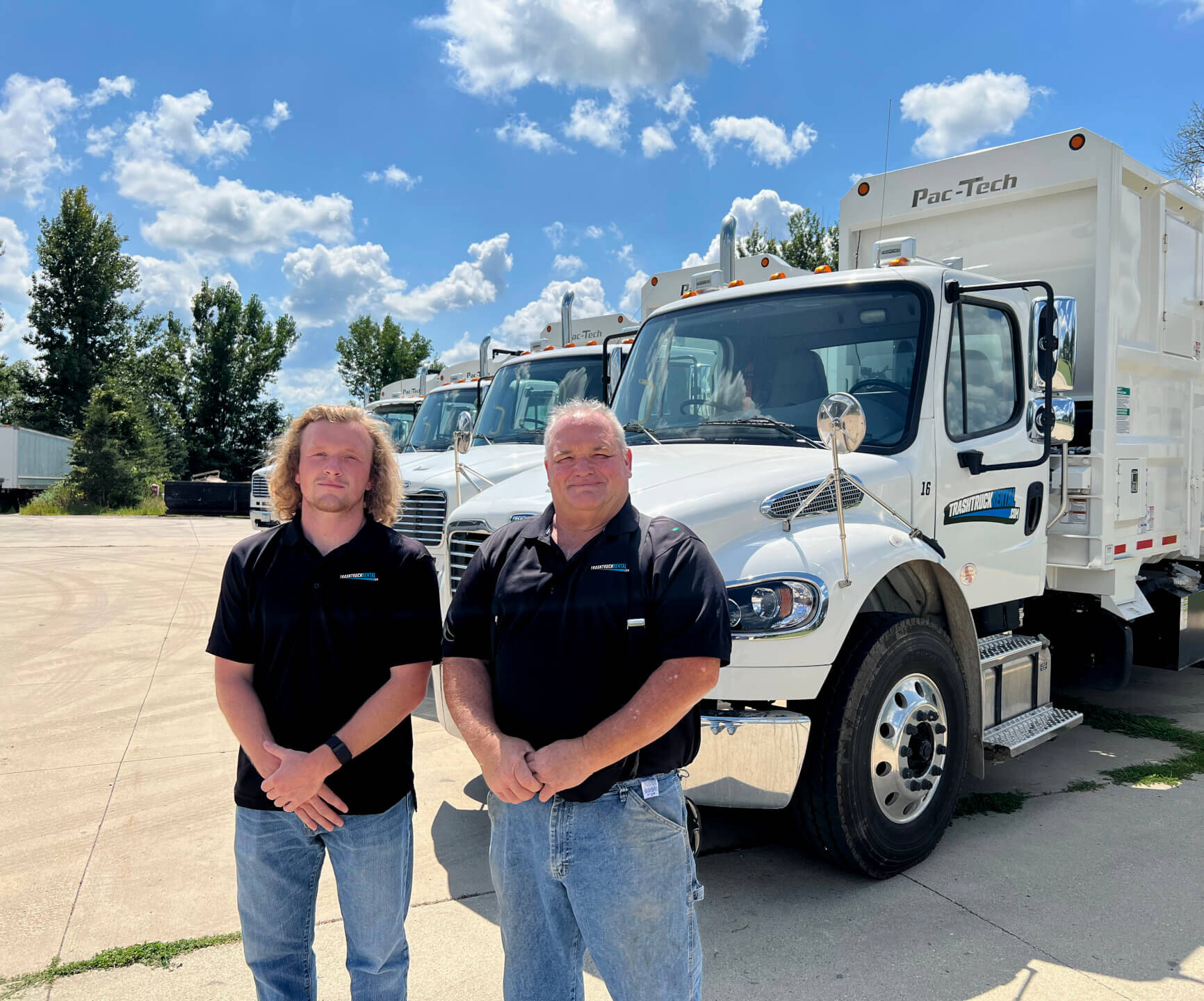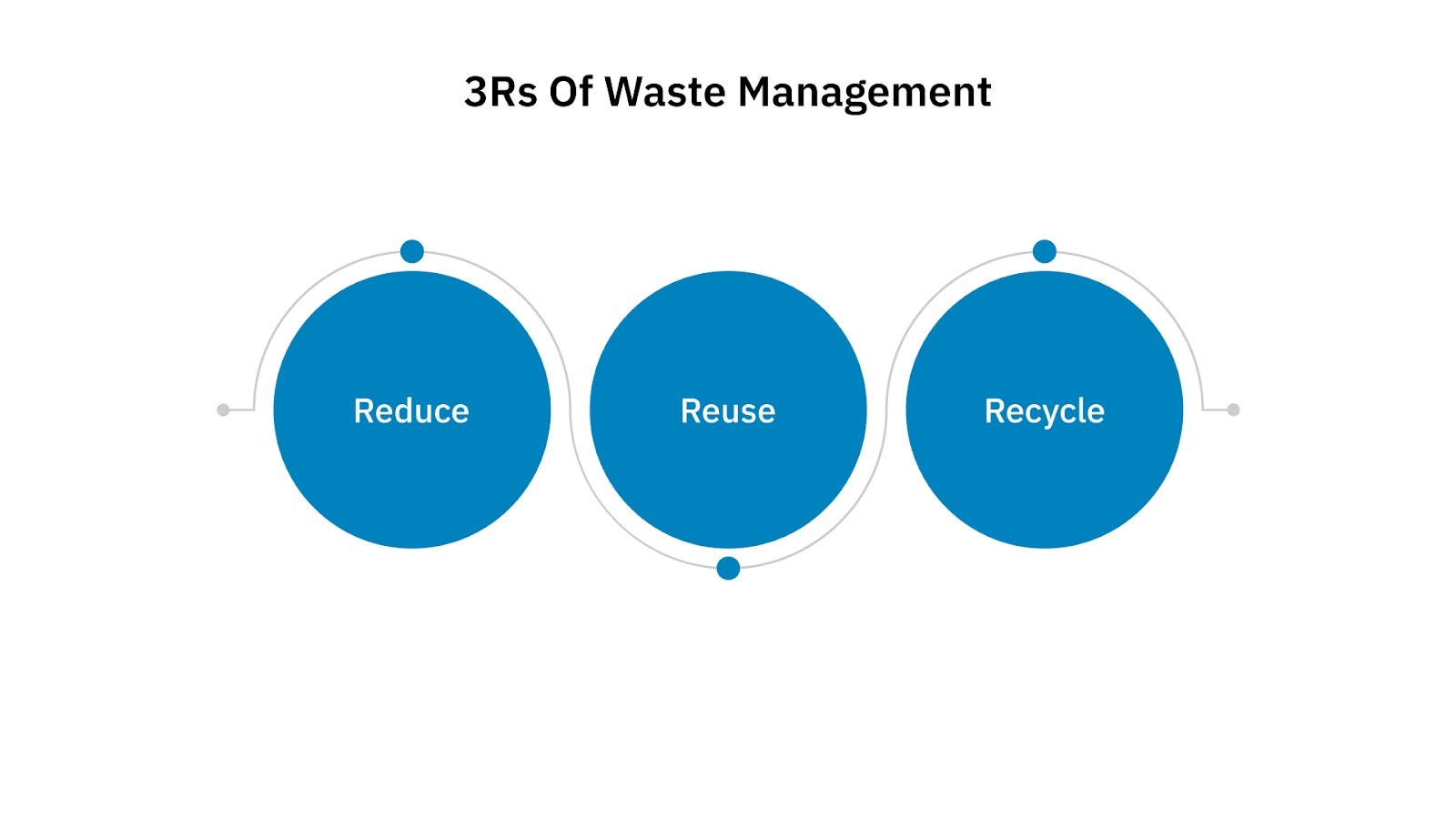Effective Waste Management Tips for 2025
Get the best waste management tips for 2025. Prioritize the 3 Rs. Stay ahead of laws. Increase efficiency with tech. Reduce costs! Click now.

Get the best waste management tips for 2025. Prioritize the 3 Rs. Stay ahead of laws. Increase efficiency with tech. Reduce costs! Click now.


Did you know how much waste the U.S. produces daily and what that means for your operations?
In 2020, global municipal solid waste reached 2.13 billion metric tons (Statista, Feb. 2024). The U.S. contributed 11.65% of that total, producing nearly 292 million tons annually.
As regulations tighten, sustainability goals grow, and technology changes fast. Those who ignore smart waste policies face rising costs, fines, and inefficiencies.
Forward-looking waste management tips can help you cut risks, control expenses, and support long-term environmental goals.
In this guide, you will learn the 10 most effective waste management tips for 2025, their benefits, challenges, and how modern solutions support a greener future with cleaner and flexible operations.
Waste management is the process of handling waste from start to finish. It covers collection, transportation, disposal, and recycling. You deal with the flow of waste every day, whether through municipal systems or private operations. The aim is simple: keep operations efficient while meeting strict standards.
Modern approaches go beyond hauling and dumping. Automation now improves pickup efficiency. Smart technology helps track volumes, routes, and compliance. Eco-friendly methods, such as cleaner fuel trucks and recyclable materials, reduce the impact on the environment. These tools help you manage waste in ways that meet today’s demands.
Waste management is about more than moving trash. It is about managing systems with precision. Next, you will learn the core principles of 3Rs.

The 3Rs: Reduce, Reuse, and Recycle are the backbone of responsible waste handling. Each one shapes how you cut waste and improve efficiency.
Yet challenges remain. Today, the U.S. recycles only 5% of its plastic waste. That gap highlights the need for stronger recycling systems and better participation.
Applying the 3Rs consistently strengthens your overall approach. It creates a solid base for adopting practical waste management tips that respond to modern challenges.
Running waste management operations in 2025 demands proven practices and modern solutions. Regulations are stricter, costs are higher, and technology continues to reshape the industry.
You must balance efficiency with compliance while keeping sustainability in focus. Waste management tips can help you adapt and improve results across municipal, business, and commercial operations.
Here are 10 actionable strategies to guide your planning and execution.
Smart bins use sensors to track fill levels in real time. For municipalities, it reduces unnecessary pickups and lowers fuel costs. Businesses can monitor waste output across multiple sites and make data-driven decisions. Communities gain from cleaner public spaces with fewer overflows.
This approach improves collection schedules and supports compliance with environmental rules. Using smart bins is one of the most effective waste management tips for data-driven efficiency.
Routing software reduces travel distance, saves fuel, and increases collection efficiency. Municipalities can manage large service areas with fewer delays. Businesses can simplify pickups from multiple sites without wasted trips.
Route optimization also reduces emissions, aligning operations with sustainability goals. It ensures trucks cover more ground with less effort, lowering wear and tear. As waste management tips go, efficient routing directly supports cost savings and cleaner operations.
Automated sideload trucks improve safety and speed during curbside collection. They require fewer crew members and complete daily routes more consistently. Municipalities can service 500–1,500 households daily without delays.
Businesses handling residential contracts can expand coverage with fewer resources. Automated trucks also reduce workplace injuries, supporting long-term workforce stability. Adopting automation is a practical waste management tip that supports reliability and operational growth.
Recommended Reading: Long-Term Garbage Truck Rental Requirements
Even advanced equipment underperforms without skilled operators. Training programs ensure crews understand safety protocols, proper handling, and new technologies. Municipal managers can reduce accidents and downtime through skilled teams.
Businesses benefit from operators who extend the life of equipment. Communities enjoy consistent service when staff work efficiently. Investing in people remains one of the most practical waste management tips for steady performance.
Modern recycling plants separate materials more accurately and quickly. Municipalities can expand recycling programs with fewer errors in sorting. Businesses reduce landfill contributions and meet compliance requirements more easily.
Advanced facilities also open opportunities to recover value from recycled goods. Communities gain cleaner environments and stronger recycling participation. Recycling technology adoption is one of the forward-looking waste management tips to reduce long-term disposal costs.
Tracking waste output helps identify trends and improve planning. Municipalities can measure community progress toward recycling goals. Businesses can see which sites generate the most waste and act accordingly.
Data insights also support compliance reporting and cost analysis. With reliable data, you avoid guesswork and make informed operational decisions. Waste management tips centered on data-driven insights keep your systems efficient and accountable.
Public involvement strengthens waste management systems. Municipal leaders can run campaigns encouraging residents to sort waste correctly. Businesses can work with local groups on recycling drives. Community programs also build public trust by showing shared responsibility for the environment.
Clear messaging ensures participation and better results. Programs like these remain proven waste management tips that improve efficiency while building stronger relationships.
Also Read: Too Many Stops, Not Enough Trucks? How to Stay on Top of Summer Routes
Did you know that as of 2024, there were more than 1,300 hazardous waste sites in the U.S., with New Jersey having the largest number of sites. (Statista, March 2025)
Hazardous materials demand specific handling and disposal. It includes secure containment, specialized transport protocols, and adherence to regulatory disposal procedures to prevent environmental contamination and health risks. Municipalities must ensure compliance with federal and state rules. Businesses can reduce risks by training staff on safe storage and disposal.
Dedicated pickup schedules for hazardous items improve safety and reduce contamination. Communities benefit from safer environments when these processes are followed. Proper planning for hazardous waste is a critical waste management tip for operational safety.
Adopting renewable energy in operations reduces fuel costs and emissions. Municipal fleets can transition to hybrid or electric trash trucks. Businesses with depots can install solar panels to offset energy costs.
Renewable options improve long-term savings while aligning with sustainability commitments. Communities gain from cleaner air and reduced greenhouse gasses. Integrating renewable energy stands out as a modern waste management tip that supports both compliance and cost control.
Waste management contracts should not remain static for years. Municipalities can renegotiate agreements to reflect updated regulations and service demands. Businesses can reassess vendor performance and pricing to keep costs under control.
Regular reviews also ensure insurance, maintenance, and liability terms remain fair. This simple step keeps operations flexible and aligned with evolving needs. Reviewing contracts is a straightforward but overlooked waste management tip that ensures long-term stability.
Applying these 10 approaches creates stronger systems built on proven practices and modern advances. Consistency in applying waste management tips can help you improve operations while meeting strict requirements. Now, let’s discuss some common challenges that often arise in waste management.
Even with proven systems and modern tools, waste management often faces recurring challenges. Municipalities, businesses, and commercial operators must know how quickly these problems can impact budgets and service quality. Most of these issues are avoidable with the right planning and resources.
Here are 5 common challenges you may face and ways to overcome them:
Poorly planned routes, missed pickups, and delays reduce service quality. Municipalities often struggle when staff shortages or outdated systems disrupt schedules. Businesses face rising complaints and higher fuel costs from inefficient operations.
The solution lies in route optimization software, automated trucks, and real-time monitoring. These tools improve reliability and reduce wasted time. Applying waste management tips like smarter scheduling ensures smoother operations and better results for all stakeholders.
Fuel, labor, insurance, and disposal fees increase every year. Municipal budgets are stretched thin, and businesses risk losing profitability. Rising costs often force organizations to compromise on service.
You can avoid this by renegotiating contracts, investing in efficient trucks, and adopting renewable energy solutions. Tracking expenses closely also highlights opportunities to save. Waste management tips focused on cost control keep operations sustainable without sacrificing quality or compliance.
Further Insights: A Guide to Different Types of Garbage Trucks
Limited access to reliable trucks slows down entire operations. Breakdowns lead to missed pickups, safety risks, and angry customers. Municipalities must balance aging fleets with high replacement costs.
Businesses face downtime that directly affects contracts. Flexible rental or leasing options help cover gaps and maintain service continuity. Regular maintenance schedules also extend truck life. Access to dependable equipment remains essential for consistent performance.
Federal and state regulations around disposal, recycling, and hazardous waste are strict. Municipalities risk fines if rules are overlooked. Businesses face legal liabilities that damage reputation and revenue.
Avoid these issues with regular staff training, compliance audits, and up-to-date reporting systems. Keeping processes transparent reduces risks while ensuring public trust. Compliance challenges highlight the importance of waste management tips that focus on accountability and legal standards.
Landfills continue to reach limits, increasing disposal costs and restrictions. Municipalities often struggle to find space for growing waste volumes. Businesses feel the impact through higher tipping fees and tighter regulations.
Solutions include expanding recycling efforts, reducing waste at the source, and looking for alternative disposal methods. Partnerships with advanced recycling facilities also help reduce landfill dependence. Addressing capacity challenges requires forward planning and innovation.
Tackling these challenges strengthens your overall system and keeps operations efficient, compliant, and cost-effective. With these issues in mind, it becomes easier to see how trash truck rental service can directly support stronger and greener waste management strategies.
Trash Truck Rental is a family-owned company with over 20 years in the waste industry. Based in Minnesota, we offer customized services to municipalities, businesses, and commercial operations. Our focus is on flexible solutions, modern fleets, and customer-first service.
Here’s how we support your waste management needs:
Is equipment shortage or rising costs affecting your operations? Connect with Trash Truck Rental today and see how our flexible and affordable solutions can help.
In 2025, the importance of waste management continues to grow as sustainability goals, regulatory pressures, and advancing technology reshape the way municipalities, businesses, and commercial operators handle daily waste. Effective systems protect budgets, ensure compliance, and improve long-term efficiency.
The 3Rs (Reduce, Reuse, and Recycle) remain at the center of every effort. Alongside them, practical waste management tips such as smart bins, automated trucks, staff training, data monitoring, community programs, and regular contract reviews guide you toward more effective and sustainable practices.
Still, common challenges like collection inefficiencies, rising costs, and equipment shortages persist. These obstacles can be overcome with planning, data-driven insights, modern equipment, and clear community engagement.
Are rising costs, equipment shortages, or compliance risks slowing your waste management operations?
Practical waste management tips require dependable support.
At Trash Truck Rental, we provide flexible, affordable, and reliable solutions across all 50 states. Connect with our expert now.
It depends on waste volume, route density, and collection type. Automated sideload works for residential routes (500-1,500 households); rear-load is good for urban commercial zones; roll-off trucks suit large projects or heavy materials. Match truck size to usage and terrain.
Leases run from 28 days up to 24 months. Short-term leases cover seasonal or temporary needs; longer leases provide stability for ongoing routes or projects without needing full ownership.
You (the lessee) must ensure and maintain the truck during the lease. You handle daily checks, servicing, fluids, and basic upkeep. The rental company may handle major structural issues if specified, but your contract should clarify responsibilities completely.
Trucks sold after 1-2 years of leasing come with 4-5 years of engine and transmission warranty. It gives you coverage on major components while buying at a lower cost than brand-new models.
Yes, the company offers nationwide coverage. You can rent or lease, then deploy trucks in any of the 50 states. Logistics will depend on location, so check delivery and drop-off options in your area.
Ready to Upgrade Your Process Operations?